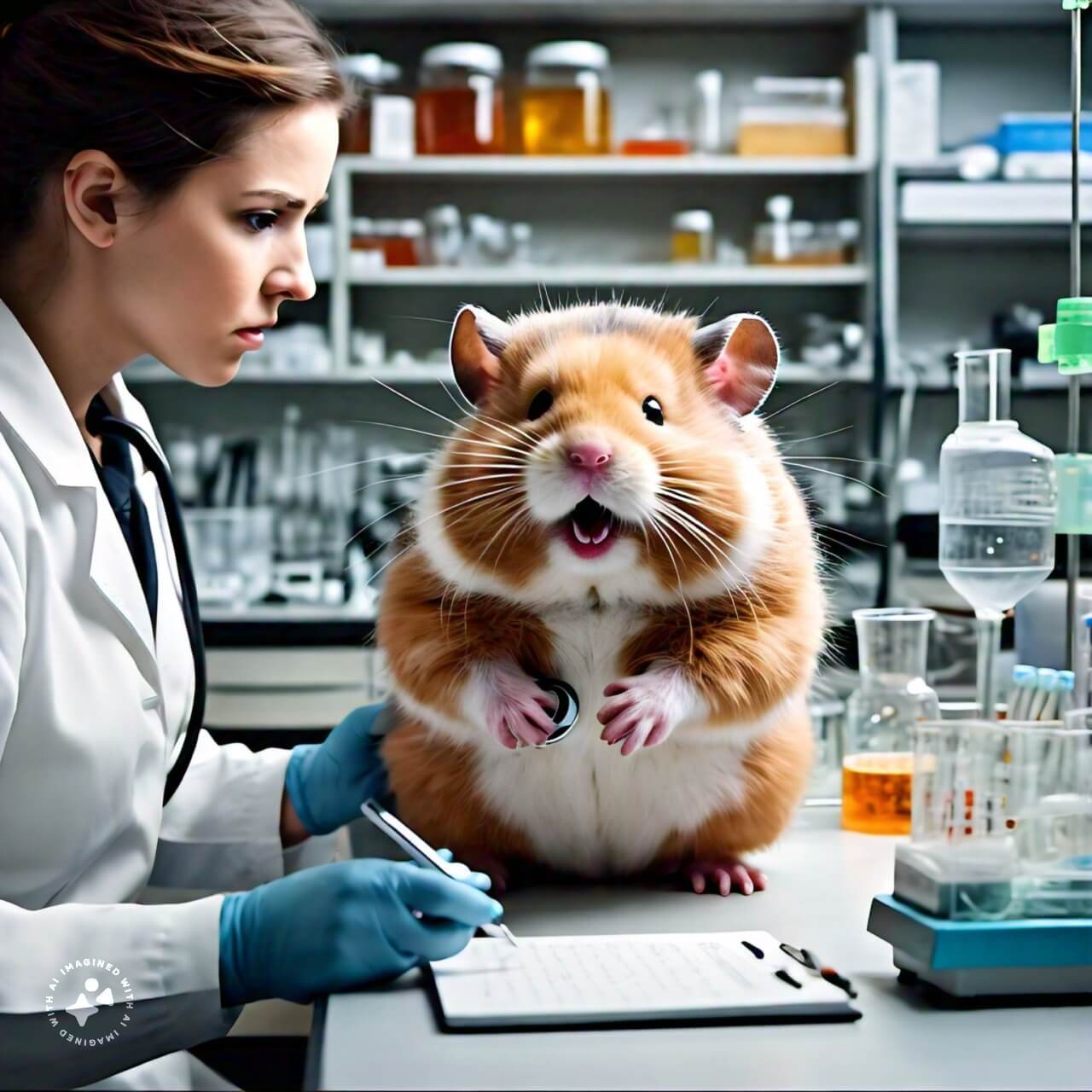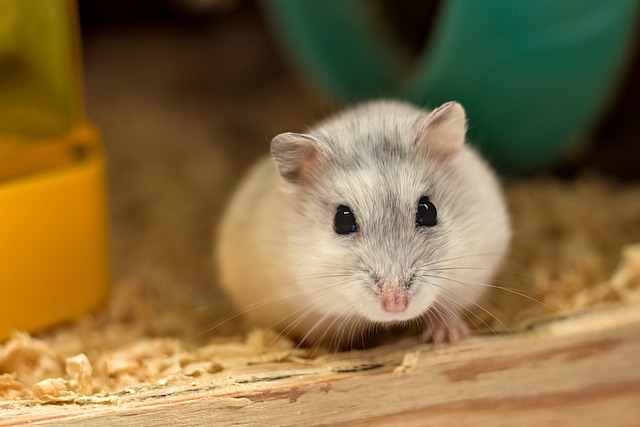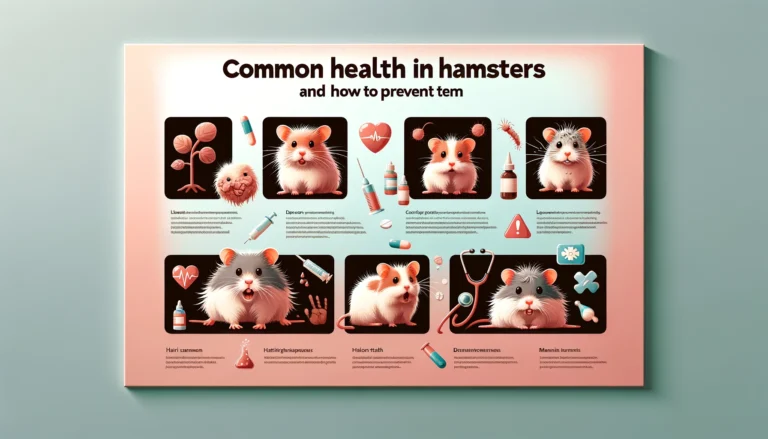Why Do Hamsters Have Heart Attacks So Easily – hamsters.pk
Understanding the Fragile Heart of a Hamster: Key Factors Influencing Cardiac Health
Hamsters, though small and often seen as low-maintenance pets, have a set of complex health needs that require careful attention. Among these, cardiac health is crucial due to the fragility of their tiny hearts. Understanding the key factors that influence the cardiac health of hamsters can help pet owners ensure a healthier and potentially longer life for their furry companions.
The Role of Genetics in Hamster Cardiac Health
Genetics play a significant role in the overall health of a hamster, including its heart. Certain breeds of hamsters, particularly the smaller ones like the Dwarf and Roborovski, are more prone to cardiac issues. These genetic predispositions can lead to a higher risk of heart diseases, which may manifest early in the hamster’s life. Awareness and understanding of these genetic factors can aid in preventive care and early detection of potential problems.
Impact of Diet on Heart Function
Just as in humans, a balanced diet is crucial for maintaining a hamster’s heart health. High-fat and sugary foods can lead to obesity and related complications, such as increased heart strain and cholesterol issues. It is essential to feed hamsters a diet rich in fibers, low in fats, and adequately supplemented with fruits and vegetables specifically safe for them, like cucumbers and apples.
Exercise and Its Effects on Cardiovascular Health
Exercise is vital for hamsters not only for weight management but also for maintaining a healthy heart. Lack of physical activity can lead to obesity, which significantly strains the cardiovascular system. Providing a running wheel, creating a safe play area, and regular, supervised out-of-cage time can greatly enhance their physical health and stimulate their heart function.
Stress Factors and Heart Disease in Hamsters
Stress is a critical factor in the health of hamsters. High-stress environments can lead to various health issues, including heart disease. Factors such as loud noises, improper handling, unsuitable living conditions, and the presence of other pets can contribute to stress in hamsters. It’s crucial to maintain a calm and stable environment to keep your hamster’s heart health in check.
Preventive Measures for Optimizing Cardiac Health
Regular veterinary check-ups are essential to monitor the heart health of hamsters. Early detection of potential issues can be life-saving. Additionally, understanding the signs of cardiac distress, such as lethargy, labored breathing, and reduced physical activity, can help in taking timely action to address heart-related issues.
Understanding the Fragile Heart of a Hamster: Key Factors Influencing Cardiac Health is not just about treating issues as they arise but also about creating a preventive and supportive environment that nurtures the delicate cardiac system of these endearing creatures. With proper care, attention, and love, hamsters can enjoy a healthy life despite the fragility of their tiny hearts.
Stress and Environment: How They Contribute to Cardiac Issues in Hamsters
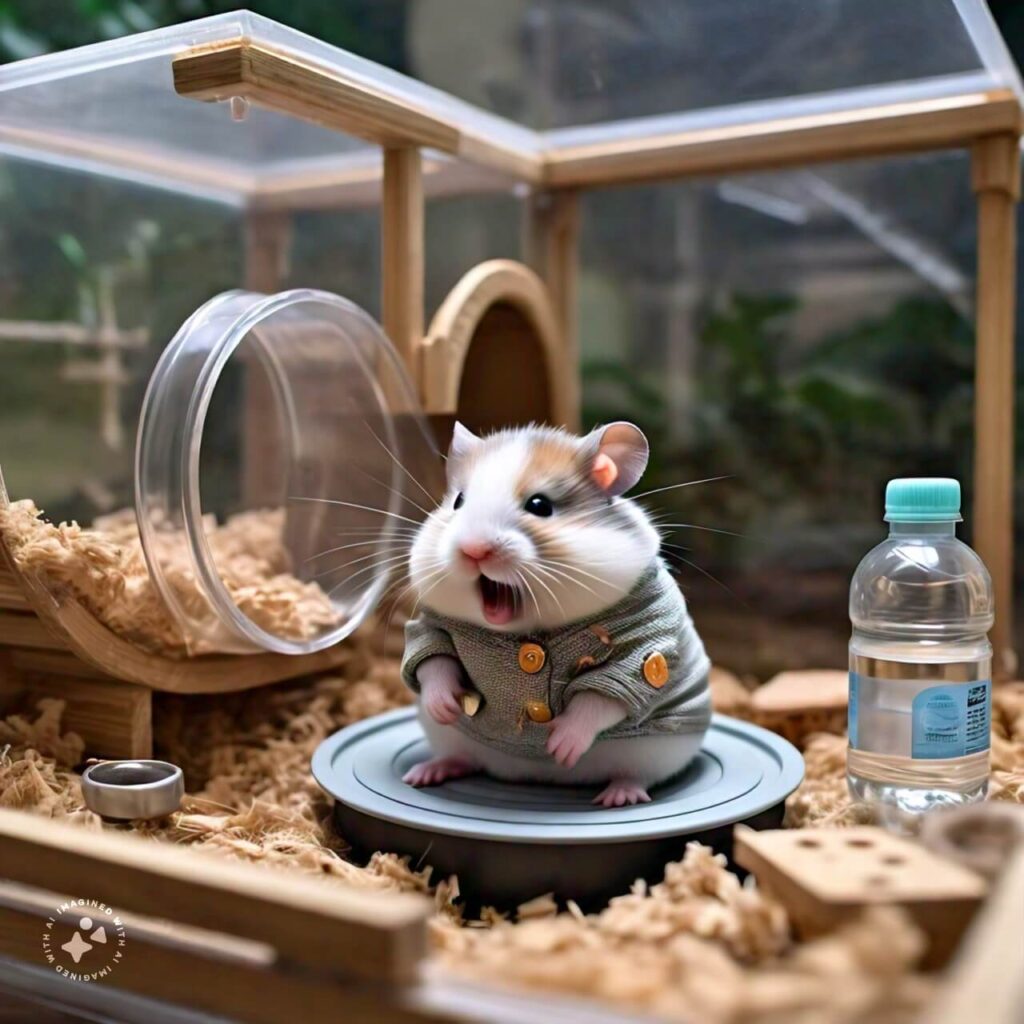
Hamsters, with their tiny stature and energetic demeanor, are popular pets that bring joy to many households. However, they are also susceptible to health issues, particularly cardiac problems, which can be exacerbated by stress and environmental factors. Understanding how these elements influence the health of hamsters is crucial for ensuring their longevity and well-being.
The Impact of Stress on Hamster Health
Stress is a significant factor that can lead to cardiac issues in hamsters. These small creatures are highly sensitive to changes in their environment, handling, and even changes in their daily routine. Stress triggers a release of cortisol, a hormone associated with stress response in animals, which can have detrimental effects on their overall health, including their heart.
Key stressors for hamsters include loud noises, improper handling, and the presence of predators, or even other pets, which can make them feel threatened. Chronic stress can lead to an increased heart rate and blood pressure, weakening the hamster’s cardiovascular system over time and making it prone to various heart diseases.
Environmental Influences on Hamster Cardiac Health
The environment in which a hamster lives plays a critical role in its cardiac health. Poor living conditions, such as small or overcrowded cages, lack of exercise, and unsuitable bedding, can all contribute to stress and subsequent heart problems.
Proper habitat is essential for reducing stress in hamsters. This includes a spacious cage that allows for exercise, hiding places, and a quiet, stable location away from direct sunlight and drafts. Additionally, the cage should be kept clean and free from contaminants that could cause respiratory distress and additional strain on the cardiovascular system.
Nutritional Factors and Heart Health
Diet also plays a crucial role in the cardiovascular health of hamsters. An imbalanced diet can lead to obesity and associated complications such as heart disease. High-fat diets, in particular, are harmful as they can lead to the buildup of fatty deposits in the arteries, which can impede blood flow and lead to heart failure.
Feeding hamsters a balanced diet rich in fibers and low in fats is vital. Ensure they have access to fresh food, including fruits and vegetables, which can help maintain optimal weight and reduce the risk of heart issues.
Monitoring and Mitigation
Regular monitoring of a hamster’s health can help catch signs of stress and heart issues early. Symptoms such as lethargy, labored breathing, or reduced appetite should prompt a visit to a veterinarian.
Furthermore, minimizing stress by gradually acclimating hamsters to handling and making environmental changes slowly can help maintain a stable heart condition. Providing enrichment through toys and exercise options like wheels or tunnels can also keep hamsters engaged and physically active, reducing stress and promoting heart health.
Conclusion
The health of hamsters is intricately tied to their environment and their ability to manage stress. By creating a supportive and stable environment, providing proper nutrition, and monitoring for signs of distress, pet owners can significantly reduce the risk of heart issues and ensure a healthy, happy life for their furry friends.
Genetic Susceptibility: Why Some Hamsters Are More Prone to Heart Attacks
Introduction to Genetic Factors in Hamsters
Hamsters, like many small rodents, are often seen as low-maintenance pets, but they can be susceptible to a range of health issues, including heart attacks. While environmental factors like diet and stress contribute to their cardiac health, genetic predisposition plays a significant role. This article explores why some hamsters are more prone to heart issues due to their genetic makeup.
Understanding the Role of Genetics in Hamster Health
Genetics can significantly influence the overall health of hamsters, particularly their cardiovascular system. Certain breeds of hamsters, such as the Chinese and Roborovski, may carry genetic traits that predispose them to cardiac problems. These traits can include abnormalities in heart size, the function of heart muscles, and the electrical conduction system that controls the heartbeat.
Common Genetic Heart Conditions in Hamsters
Several specific heart conditions can be more prevalent in hamsters due to genetic reasons:
- Cardiomyopathy: This condition, which leads to the deterioration of the heart muscle, can be inherited among certain hamster families. It makes it difficult for the heart to pump blood effectively, leading to a higher risk of heart failure.
- Congenital Heart Defects: Some hamsters are born with structural heart defects, which can be a direct result of genetic anomalies. These defects can vary in severity and often impact the lifespan and quality of life of affected hamsters.
Breeding Practices and Genetic Health
The way hamsters are bred can impact the genetic diversity of the population. Inbreeding, common in captive populations for pets, can exacerbate genetic predispositions to heart issues. Breeders selecting traits such as size or color might unintentionally perpetuate harmful genetic traits linked to poor heart health.
Mitigating Genetic Risks
While genetic predispositions can pose risks, there are ways to mitigate these issues:
- Responsible Breeding: Breeders should focus on genetic diversity and avoid breeding animals with known health issues.
- Regular Veterinary Care: Regular check-ups can help catch and manage heart conditions before they become critical.
- Appropriate Diet and Exercise: Maintaining a healthy lifestyle is crucial, even for genetically predisposed hamsters, to prevent exacerbating potential heart issues.
Conclusion
Understanding the genetic susceptibility of hamsters to heart attacks is vital for both breeders and pet owners. By recognizing the signs and taking preventive measures, the risks associated with these genetic predispositions can be managed. Regular veterinary visits and responsible care can help ensure that these delightful creatures lead healthier, fuller lives.
Preventive Measures: Tips to Reduce Heart Attack Risks in Your Pet Hamster
Hamsters are delightful pets known for their cuteness and playful antics. However, they are also prone to certain health issues, including heart attacks. While it may seem surprising given their small size, heart health is a crucial aspect of their overall well-being. By taking preventive measures, you can significantly reduce the risks of heart-related problems in your furry friend. Here’s how you can help keep your hamster healthy and happy.
Understanding the Basics of Hamster Health
Before diving into specific preventive strategies, it’s essential to understand the basic needs of your hamster. Ensuring a balanced diet, maintaining a clean living environment, and providing adequate exercise are foundational steps that contribute to your hamster’s heart health. These factors not only improve their physical health but also their emotional well-being.
Optimizing Diet for Heart Health
The diet plays a pivotal role in preventing heart issues in hamsters. Opt for a high-quality hamster food that provides a balanced mix of nutrients, including fibers, proteins, and a limited amount of fat. Avoid giving your hamster excessive treats or fatty foods, which can lead to obesity—a significant risk factor for heart disease. Incorporate fresh fruits and vegetables in moderation to ensure they receive essential vitamins and minerals.
Ensuring Proper Exercise
Exercise is vital for keeping your hamster active and preventing weight gain. An exercise wheel is an excellent addition to their cage, allowing them to run and stay fit. Ensure the wheel is solid-surfaced to avoid injuries. Additionally, provide time outside the cage in a secure and hamster-proof area where they can explore and exercise more freely. This not only helps with physical health but also keeps them mentally stimulated and happy.
Reducing Stress in Their Environment
Stress can have a detrimental impact on your hamster’s heart health. Minimize stress by keeping their living area in a quiet part of your home, away from loud noises and disturbances. Handle your hamster gently to avoid causing anxiety. Regular but calm interactions can help them get used to your presence and handling, thereby reducing stress and promoting a healthy, trusting relationship.
Regular Health Check-Ups
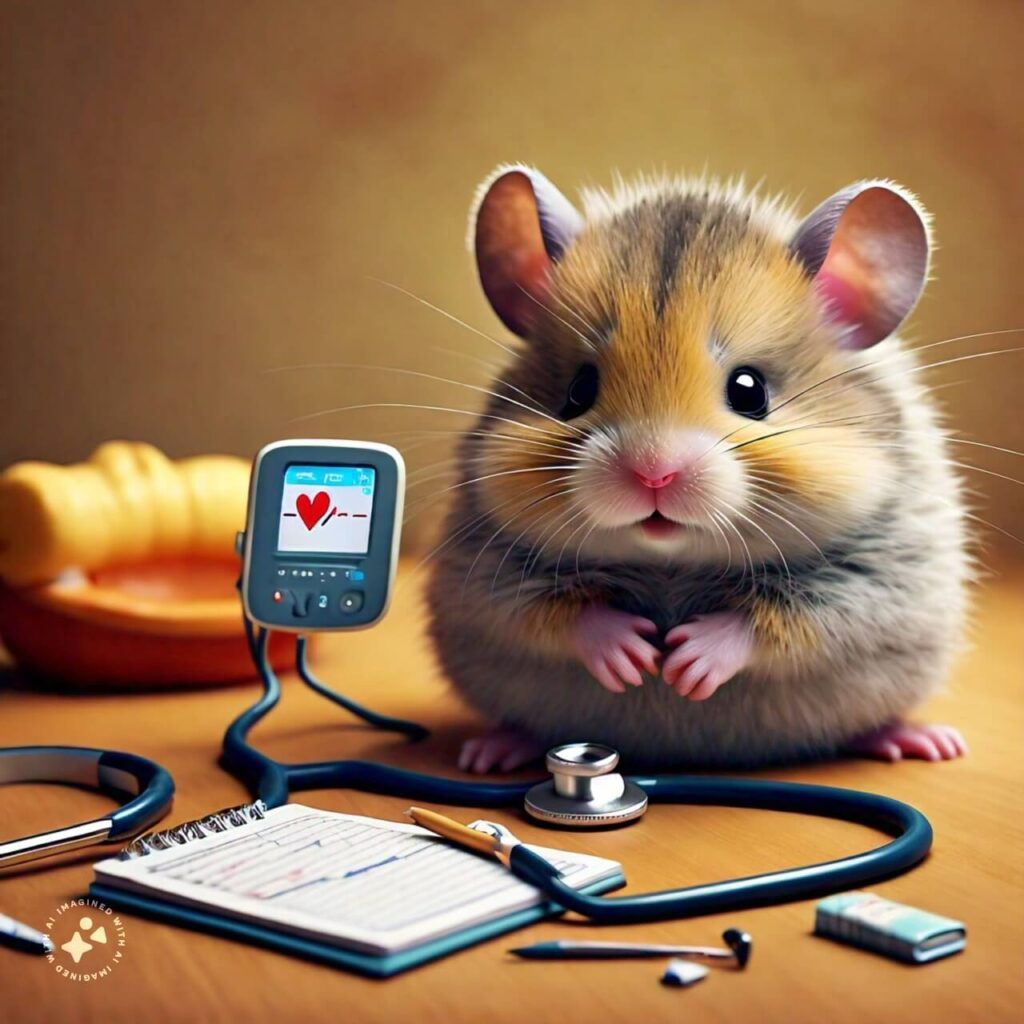
Regular check-ups with a veterinarian can help catch and mitigate potential health issues before they become severe. A vet specializing in small animals can provide specific advice tailored to your hamster’s health needs, including heart health monitoring and the best dietary recommendations.
By implementing these measures, you can significantly decrease the risk of heart problems in your pet hamster, ensuring they lead a long, healthy, and joyful life. Remember, a happy hamster is a healthy hamster!

